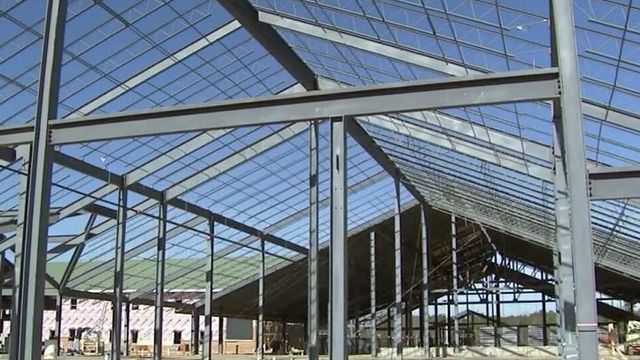Study to pinpoint counties' ability to pay for school construction
State lawmakers are spending $1 million to hire a firm to study school construction needs in all 100 North Carolina counties to obtain a clearer picture of which counties face the greatest challenges.
Posted — UpdatedAs students across the state head back to school in the next couple of weeks, they will return to schools that range from brand new to decrepit.
While the state pays most of the personnel costs for teachers and school employees, counties are responsible for building and maintaining schools. Wake County and other urban areas can borrow money to build new schools, but poorer counties have a hard time paying for renovations to 50-year-old buildings. Some lawmakers say it's time for the state to help level the playing field.
Sen. Tom McInnis, R-Richmond, said Scotland County, which is in his district, has the state's highest poverty rate and the highest jobless rate, which means its property tax rate of $1.03 per $100 valuation – that's also the state's highest – doesn't generate much revenue.
"They can't charge any more taxes. They're past their limit for taxes," McInnis said. "Yet, they have schools that are built in the '40s and '50s and '60s that need replacing.
"They have needs for a new school, but how to pay for it is certainly not going to be raising taxes."
Previous studies on the issue have recommended extra state funding for low-wealth counties, but McInnis said that amounts to more than 70 counties.
"We need to get it down to what real need is, and that's the bottom 20 or 30 or 40 that are historically rural, with high tax rates, with no opportunity for growth, with decreasing population," he said.
House Budget Chairman Nelson Dollar, R-Wake, said the study will examine all of those factors and come up with a long-term plan that could include more targeted assistance.
"It varies greatly whether you're talking about urban or rural or suburban or bedroom communities," Dollar said. "So, it's very much a challenge to determine what those needs are."
The legislature's Program Evaluation Division is getting bids from engineering firms to conduct the study. Although lawmakers expect it to cost more than the $1 million they have budgeted for it, they said it will be worth the cost if it helps the state spend money more effectively.
Related Topics
• Credits
Copyright 2024 by Capitol Broadcasting Company. All rights reserved. This material may not be published, broadcast, rewritten or redistributed.





